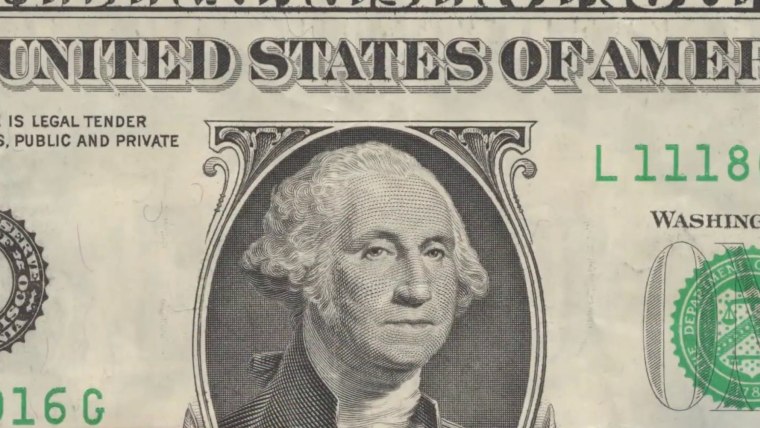
More states cut taxes on diapers and tampons amid high inflation
As inflation hikes up the costs of period-care products and diapers, more states are rolling back sales tax on such items to ease pressure on consumers’ budgets.
Colorado enacted a law Wednesday exempting those goods from state sales tax starting next year, when a similar measure in Iowa will also take hold. Consumers in Louisiana won’t have to wait that long; the state scrapped its sales tax on diapers and menstruation sanitary products as of July 1. Period-care items are already exempt from state sales taxes in Florida, Maryland and New York, which each extended carve-outs to diapers in recent weeks. Florida did the same last month, albeit just for a year.
In the U.S., researchers estimate that nearly 17 million people who menstruate live in poverty and hundreds of thousands lack access to the necessary hygiene products and facilities. Yet 23 U.S. states tax period-care items as nonessential goods and 29 treat diapers much the same way, rather than as necessities like food or toilet paper, according to the National Diaper Bank Network. Consumer advocates have long railed against this arrangement as a “pink tax” on up to half the population — the half that disproportionately cares for children.
Inflation eases but prices still up 8.5% compared to a year ago
Aug. 10, 202203:04“There’s an enormous gap between what U.S. [consumers] make and what they need to spend to support themselves and their families,” said Joanne Goldblum, CEO of the National Diaper Bank Network, a nonprofit partially funded by Kotex that helps distribute diapers to struggling caregivers.
Like many household goods, diapers and period products have soared in price as pandemic-related pressures rock supply chains and slow manufacturing. The average cost of diapers increased 13% in July from the same time a year ago, according to data from NielsenIQ, and average prices for menstrual-care products have increased by 10% over that same time span. But period-care goods and diapers aren’t covered by federal assistance programs and can face sales taxes of 4% to 8% around the country, according to the National Diaper Bank Network.
“While removing sales tax is incredibly important, diapers [and] period supplies are out of reach for many of us,” particularly low- and middle-income consumers, Goldblum said.
New data the Bureau of Labor Statistics released Wednesday shows that the pace of consumer price increases is starting to ease. Inflation clocked in at 8.5% in July from the same month a year ago, down from 9.1% in June. But while the cost of airfare and used cars fell last month, personal-care items — a category that includes menstrual products — rose 1% from June to July and are about 5% higher than a year ago. Prices for infant and toddler apparel, which encompasses baby diapers, ticked down slightly last month but are still up 8.2% since last year.
That adds up. Children require at least 50 diaper changes a week, or 200 diaper changes a month, the NDBN estimates. Eliminating a 7% sales tax on diapers could save a family around $66 a year, the group says. On average, a person who menstruates will use about 17,000 tampons or pads — roughly $1,800 worth — over a lifetime, according to the American Medical Association.
Michelle, a 29-year-old mental-health worker in Los Angeles, said she used to spend $300 to $360 a year on period-care products, including pain relief. Michelle, who asked that only her first name be used for privacy reasons, recently started a new birth control that completely eliminates her period. She’d hoped doing so might help her save money, but the medication costs about $30 a month even with insurance — basically a wash.
“With these hygiene products, what are you going to do? You can’t not buy them,” she said. “These companies have a captive consumer.”
While California has extended its tax holiday for period products into next year, Michelle said she still feels it’s worth sticking with a pill that can eliminate her painful menstruations. But as she pointed out, Viagra isn’t subject to California’s state sales tax.
In some parts of the country, a shopper can buy prescription erectile-dysfunction pills or an over-the-counter hair-loss treatment, like Rogaine, because those products are deemed medical necessities, according to the Alliance for Period Supplies, a program run by the National Diaper Bank Network. Meanwhile, a consumer at the same drugstore might pay a sales tax on Tampax or Huggies, which are considered nonessential items.
“It just feels unfair, and especially in this current political climate where people are already dealing with so much,” Michelle said. “It just feels like kind of an attack on people with uteruses.”
Some tax experts oppose eliminating sales taxes on individual items such as diapers and menstrual-care products. Doing so shrinks the overall share of goods that can be taxed and risks policymakers’ raising taxes on a smaller pool of purchases, said Katherine Loughead, a senior policy analyst at the Tax Foundation, a nonprofit that generally backs lower taxes. That could reduce state budgets for public services without relieving much pressure on consumers’ wallets at the end of the day.
Source: https://www.nbcnews.com/business/consumer/states-cut-taxes-diapers-tampons-high-inflation-rcna42537







